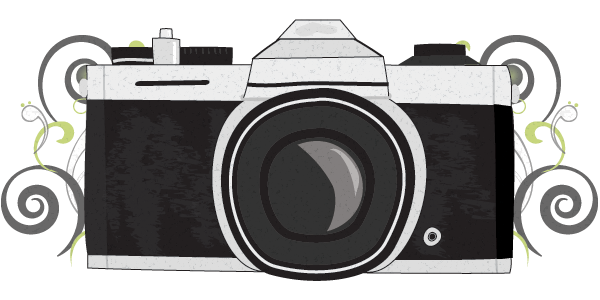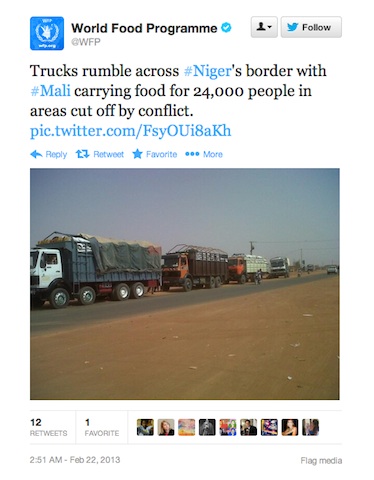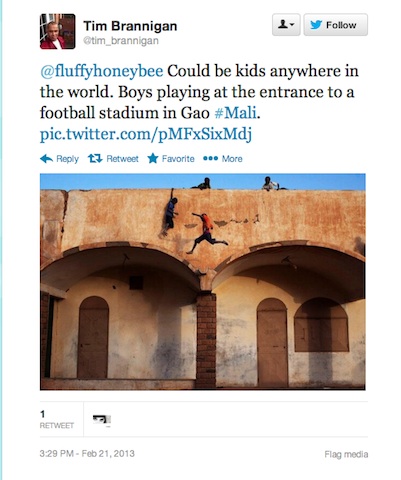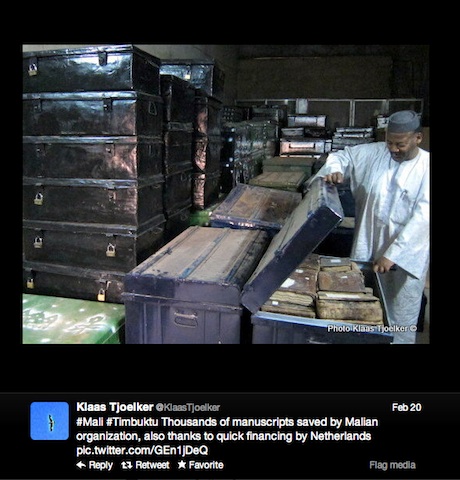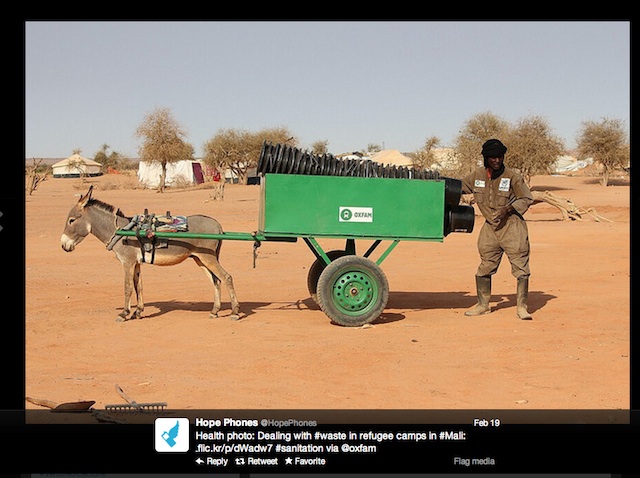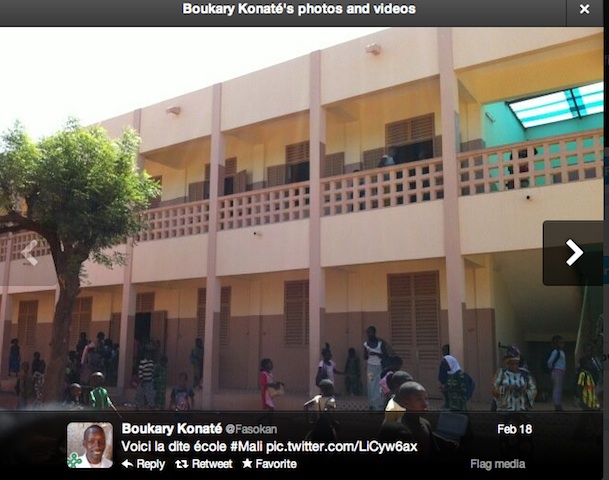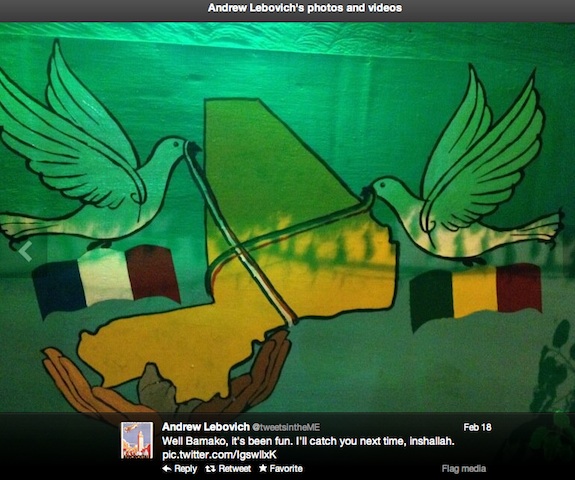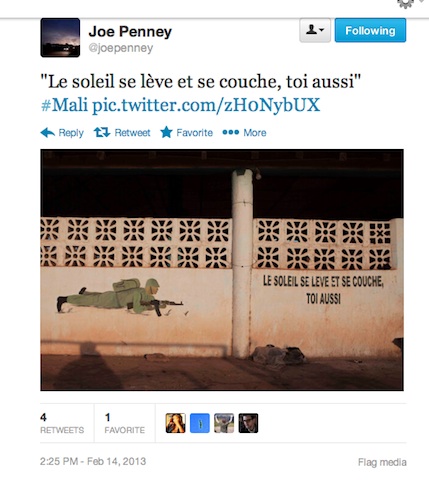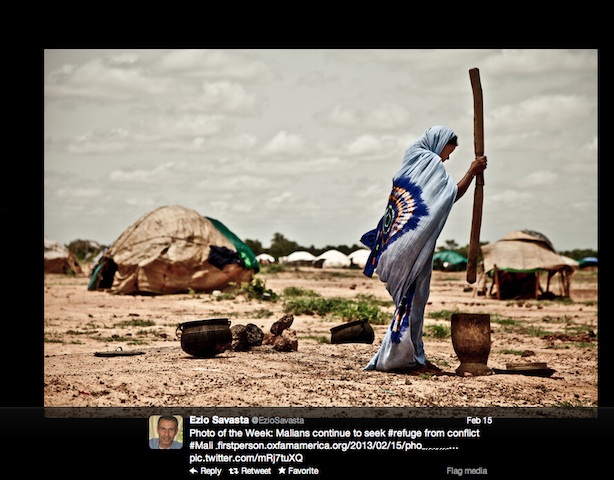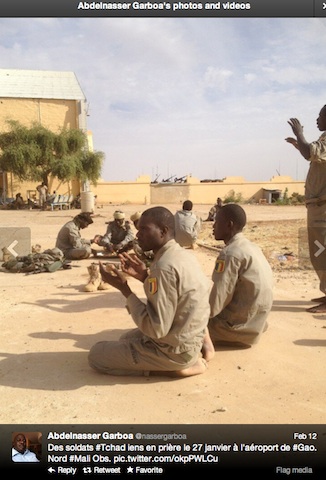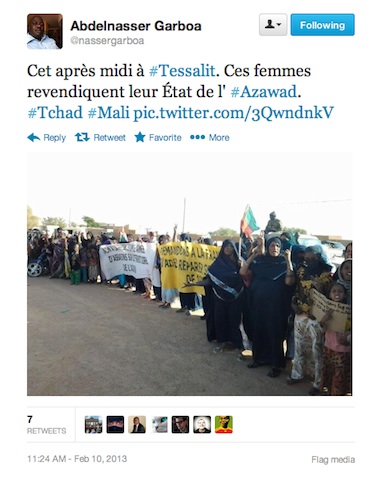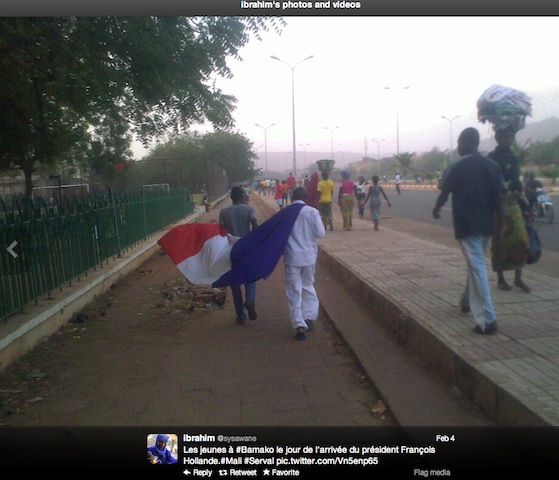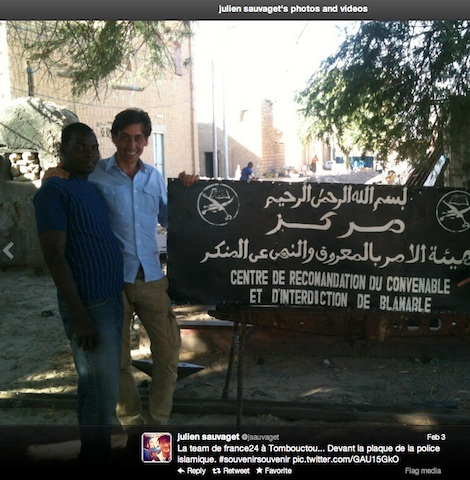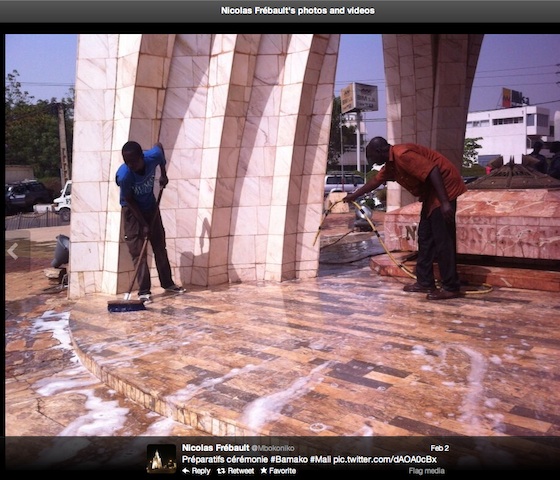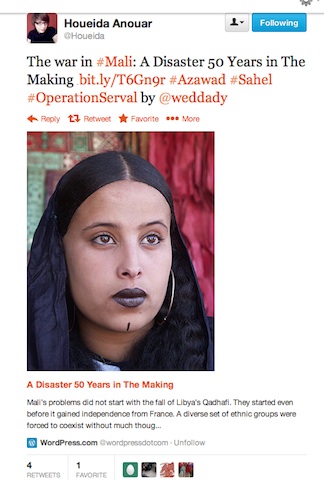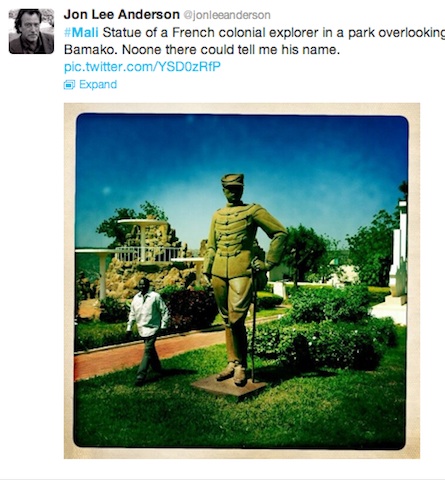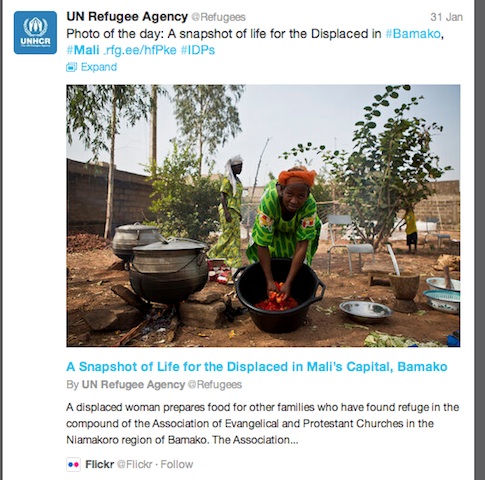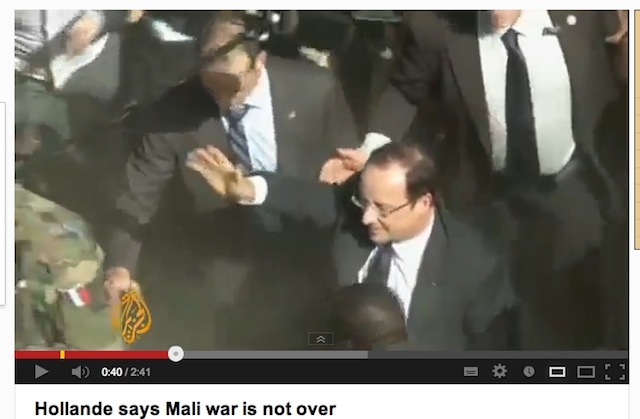Makan Koné is the chairman of the house of press in Mali. He tells us about the daily life of Malian journalists and their coverage of the conflict.
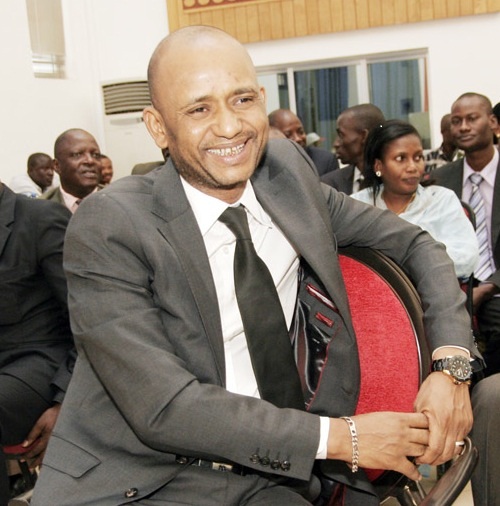
How do you cover the war in your own country? Is it not difficult to stay neutral?
Makan Koné: Of course, it is difficult because we are always tempted to show more patriotism in such situations. Besides, we are in a state of emergency which implies that the media are under control. In a war, news are always serving the war effort. But we attempt to stay neutral and objective. The most important is to provide information. The House of Press was created in 1996 and since the beginning of the conflict, we have made an agreement with the French embassy to ease the media coverage. We are a media outlet ourselves now and we post news everyday on our website. We have more means in order to send journalists in Sévaré or Gao and to cover more the field.
What are the difficulties of the coverage besides security issues?
Makan Koné: I think the main obstacle is to know what you can’t say and to deal with it. For instance, it is hard to criticize the Malian army but I think we should do it more. In my opinion, it is really important to show that the Malian army has not the military means today to assure security allover the country. I am always surprised that the government have not learnt lessons from the previous actions of the army last year. So it is difficult to speak openly about these issues in Malian media and to put the stress on the weaknesses of the Malian army . We try nonetheless to not censor ourselves.
What do you think of the CSA (The Conseil Supérieur de l’Audiovisuel) in France which called in France Televisions chairman because of some “sensitive” images of dead people in Mali showed on TV?
Makan Koné: I think it is a very tough issue. On one hand, we have to show the exactions even more if they are the result of a “revenge” operation by the Malian army. France 24 showed images as well and it had an informativ value. On the other hand, it can be very dangerous to show such images when the situation in Mali is still on the brink to collapse. I think we should speak about it and be aware of it through media reports but we should ponder more about the way we show these images.
What do you think of the French media coverage? Do they show enough of the war? Do they stay neutral according to you?
Makan Koné: Here in Bamako we daily watch French media. I watch France 24 and France 2 coverage. I think it is quite neutral but the only thing bothering me is more the “expertise” some french pundits think they have on the country. Some of them are often wrong or not precise enough in their statements. For instance, when you speak about MNLA as a “tuareg rebellion”, it is completely untrue because not all tuaregs are from this movement. My mother is a tuareg for instance.
What’s next according to you? Do you think the situation will finally be stabilized in the North?
Makan Koné: We may go through a period of respite in the North even if for now, nothing is sure especially with the recent suicide blasts in Tessalit. The pillar of the conflict is still the Malian army and its capacity to secure the country. I think it’s premature to speak of elections in July. Maybe three or four months after hopefully, we will have elections with strong institutions.
Interview by Lilia Blaise
